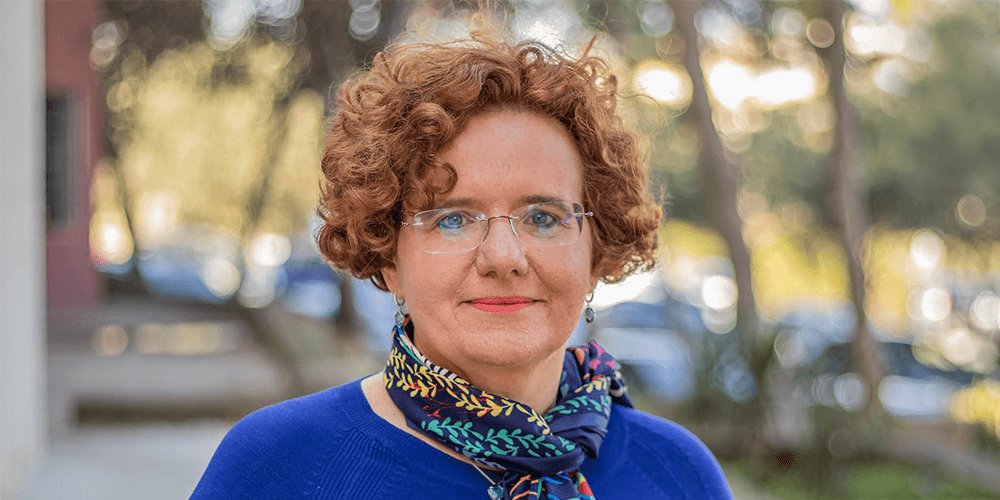While some of us are privileged to be shielded from it, the truth remains — violence in Malta is rampant. From popular songs to neighbours’ conversations, the normalisation of abuse is shaping our communities and our basic understanding of healthy relationships. Words by Cassi Camilleri.
Nearly a quarter of our island’s female population is subject to physical and / or sexual violence before reaching the end of compulsory education. Citing the EU-wide survey on violence against women by the European Agency for Fundamental Human Rights, family studies expert Dr Clarissa Sammut Scerri points out that statistically, 22% of Maltese women have experienced one of these acts of violence by the time they are 15 years old.
The fog of abuse
The effect that gender-based violence and domestic violence has on people is multifaceted. It can range from devastating physical injuries in the short term, to long-lasting conditions like chronic fatigue, sexual dysfunction, and gastrointestinal problems. Many victims also suffer from a range of mental health difficulties that include anxiety disorder, depression, and post-traumatic stress disorder. However, ‘subtler’ impacts also occur.
In her experience working with people who have been through intimate partner violence, Sammut Scerri has met many who tell her that their partners ‘made them the happiest and the saddest that they’ve ever been in their lives.’ But this begins to bring up questions around what relationships should be like. ‘They ask, how can someone love me, then say and do these horrible things to me? How can someone love me and then hurt me this way?’ This psychological struggle with core contradictory emotions is called dealing with cognitive dissonance, and it does not happen only to people within the abusive relationship. Children growing up in families where there is intimate partner violence are particularly vulnerable to this process, amongst a range of other psychological, physical, emotional, and academic difficulties that they may suffer.
In her co-authored book Intervening after Violence, with Prof. Arlene Vetere, Prof. Angela Abela, and Dr Jan Cooper, Sammut Scerri describes the experiences of women who lived with domestic violence as children. ‘The core contradiction seemed to be organised around love and fear,’ she writes of her participants. ‘My father loves me but he beats me until he almost kills me! How can [my] mother love my father but be afraid of him? How can my mother protect me from my violent father, and then insist that I love him and respect him?’

Looking at what can help people with these experiences, Sammut Scerri starts at therapy and support. ‘In our experience, we find that both in therapy and in supervision, practitioners need to manage these contradictions and dilemmas,’ she writes. ‘Unless this happens, there is a danger that in listening to these horrific experiences of these family members, we can only make sense of them by constructing the perpetrator as “all bad”, and we may find ourselves minimising or pathologising the attachment experiences of these adult children with the parents who were abusive towards them.’
Sammut Scerri sees pathologising and victim blaming as a widespread issue locally and internationally. ‘I think that a lot of people who have gone through abuse are often viewed by society as “damaged goods”. When we pathologise people, we only look at the bad things that happened to them. We don’t look at their strengths and their resilience. We don’t look at their successes.’
The gender-based violence survey conducted by the European Commission in 2016 justifies these concerns, particularly on home shores. The report states that a staggering 40% of Maltese respondents ‘hold the idea that violence against women is often provoked by the victim.’ A further 47% also believe ‘women make up or exaggerate claims of violence.’ And yet another 30% believe that at least one situation justifies having sexual intercourse without consent. Even the Maltese courts have shown themselves to be largely unsupportive of victims. In June, a soldier was conditionally discharged and allowed to keep his army job after he fractured his wife’s leg, upset over her Instagram photo.
A culture shift clearly needs to happen. ‘We need to address issues around gender inequality, and abuses of power and control in intimate relationships,’ Sammut Scerri says. ‘The idea that men are entitled to be men, that it’s okay to be aggressive, the fact that women are reared to take care of relationships. That everything is acceptable as long as you keep the family together.’
Calling for unity
Before that happens though, Sammut Scerri also concedes that she prefers to remain solutions-oriented. ‘I prefer to focus on what we can learn and do, rather than on the hurdles. The hurdles will always be there. It’s a bit like climate change and the environment. You focus on what you can do. Otherwise you start feeling frustrated and you’re not able to help other people.’
Sammut Scerri admits, however, that working in the field is complex and tough. It is easier to start feeling desperate when you are faced with these challenges coming from different institutions that deal with victims and their families, such as the law courts and the police. One needs to acknowledge that some progress has already been made in the form of training for Maltese law enforcement, but this is not enough to make a cultural change in people’s attitudes. We also need to focus on educating young people to recognise the signs of what could turn into an abusive relationship, so that they are able to stop these dynamics early on. All of this is in line with the recommendations by the World Health Organization together with the United Nations Development Programme and the United Nations Office on Drugs and Crime, who identified seven evidence-based strategies that can prevent violence.
The core contradiction seemed to be organised around love and fear. […] How can my mother protect me from my violent father, and then insist that I love him and respect him?
With the rise of organisations like Aġenzija Appoġġ, Victim Support Malta, Women’s Rights Foundation, SOAR, and Facebook Groups like Women for Women working to provide support to those in difficult situations, it seems Malta is moving in the right direction. Sammut Scerri lauds their efforts. ‘Activists are working really hard. And there has been lots of progress in terms of working towards making violence a crime and [making it clear] that it’s an abuse of human rights rather than something private. But we must continue,’ she says.
The hazards of leaving
One thing we could do less with is the naive chants of ‘leave’ and ‘leave now’. Blaming women for staying in their abusive households and abusive relationships needs to stop. Judgement can come in thick and fast from both men and women, but the reality is that ‘when a woman leaves, there is six times the risk for her to be killed,’ Sammut Scerri reveals. ‘These things are not that simple. There are children involved and, many times, financial constraints. What can people in such situations do? What are the services out there they can access? Those are the questions we need to be asking. The effort needs to be planned well, with safety in mind and the support of the authorities and the community.’
Francesca Fenech Conti, founder of an award-winning Facebook community Women for Women, sifts through pleas to post anonymous messages for other women to pitch in with experience and solutions. ‘Sorry to bother you, Francesca, but…’ some of these timid confessions begin. Having become a conduit for Maltese women trapped in difficult situations, Fenech Conti observes that of the 20 messages or so that she receives on a daily basis, ‘[the] ones that stand out the most are the ones from women still in their abusive relationships. They know they should leave. They are suffering. But they just do not have the means, or anywhere to go. With the current rent situation and lack of affordable accommodation women have nowhere to go but to shelters. Many women fear that they will lose custody of their children and this prevents them from seeking or asking for help.’
Still, this is how a conversation begins. Sammut Scerri wants to see key institutions in society united against gender-based violence and domestic violence – not only organisations working directly with victims and their families, but everyone else. ‘Everyone,’ she insists. ‘We need to keep saying that this is not on. It is not acceptable. And if you notice that something is going on with a friend, a neighbour, anyone, support that person until they seek help. It takes a while for some to realise that things are bad. So you need to be there to help when the time comes.’





Comments are closed for this article!